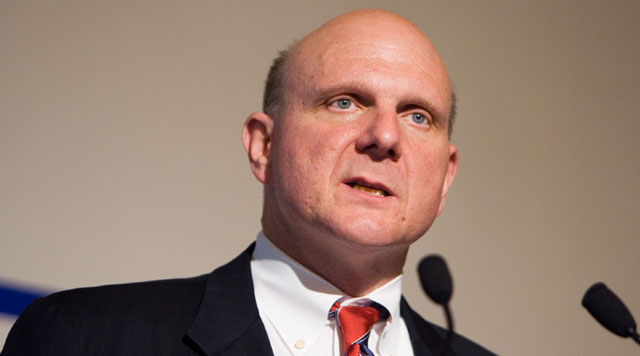 PayPal is the latest company to join a long list to ditch support for the “fringe” phone operating systems: Microsoft’s Windows Phone, BlackBerry and Amazon’s Fire OS. This decision comes on the heels of Microsoft’s announcement of getting rid of a further 1 850 jobs, most of them from what remains of the staff that came to Microsoft from its acquisition of Nokia.
PayPal is the latest company to join a long list to ditch support for the “fringe” phone operating systems: Microsoft’s Windows Phone, BlackBerry and Amazon’s Fire OS. This decision comes on the heels of Microsoft’s announcement of getting rid of a further 1 850 jobs, most of them from what remains of the staff that came to Microsoft from its acquisition of Nokia.
Microsoft’s purchase of Nokia wasn’t simply a very bad business decision from a company that is fighting its slow slide to irrelevance. The side-effect of this singularly bad business idea was to put nearly 25 000 people out of work, most of them in Finland. Microsoft’s CEO, Satya Nadella, can simply shrug his shoulders and blame his predecessor, Steve Ballmer, but an entire country is now coping with the fallout.
Microsoft may be talking about focusing on business and still supporting the concept of a Microsoft phone, but this just echoes the BlackBerry’s CEO, John Chen, who still maintains that people will want to buy their particular brand of phone. Nobody believes him either.
Part of the reason that Microsoft, BlackBerry and any other potential new phone OS has little chance of succeeding in today’s market is that we have reached a peak in the evolution of mobile phone operating systems and hardware in much the same way as we have done in the PC market.
While analysts and the “markets” may express disappointment in Apple’s and Google’s inability to come out with a radically new innovation in the mobile space, the realisation will dawn on them eventually that there is nothing more to “innovate”. Every possible angle has been explored and different versions of input, output and processing combined into every possible form factor that customers would want to buy. The iPhone 7, or 8, will not be substantially different from the iPhone 6s because there is no way it can be radically different and serve the same function.
All of this is not to say that mobile’s impact on society has done all that it is going to do. As a society, the mobile phone will still be used as a vehicle for transformation in every aspect of our lives. This will be driven by the software that runs on these phones and to a far lesser degree by the specifics of the phones themselves.
This fact hasn’t been lost on Apple, Google and the other tech giants. Their focus has now shifted to cars, the home and the entertainment industry. Mobile phones have just become one facet of the Internet of things, which is the next iteration of technology still waiting to make the full force of its presence felt. The impact of the mobile phone will be through the software that runs on the phones and the continuing move to replace “analogue” or manual and paper-based processes with “digital” and software mediated ones.

The interesting aspect of all of this is that despite the emphasis that we place on the mobile phone, the major impact of technology on society recently has been in the march of “robotisation” of the workplace. Foxconn, the major iPhone manufacturer, has allegedly replaced 60 000 factory workers with robots. It is not known how many of these workers will be retained and retrained in other jobs within the company.
In all of this, however, Microsoft is being left behind. Its impact, as evidenced by the fallout from the destruction of Nokia, being simply that of a large company taking out collateral as it flails during its last grasps at relevance. It doesn’t really matter whether it sells Windows for PCs or Surface tablets because the software that is being written for the new economy is going be written for an iPhone or Android device and on the other non-Microsoft platform Linux.
As much as Microsoft tries to make its applications platform agnostic, the revenue for the company will continue to come from software supporting its own PC and server ecosystem. Time has shown that it has been impossible for Microsoft to get away from this and still generate the revenues that it has been over the years. In this way, it is no different from the other tech companies that are struggling in the new order like IBM and Hewlett-Packard.
Nokia may well have foundered without Microsoft’s death blow. The former employees of Nokia may well get back on their feet by starting their own companies and driving a new economy for Finland. None of this would be by design of Microsoft’s actions, but rather despite its desperation to shape the new economy.![]()
- David Glance is director of the UWA Centre for Software Practice, University of Western Australia
- This article was originally published on The Conversation

